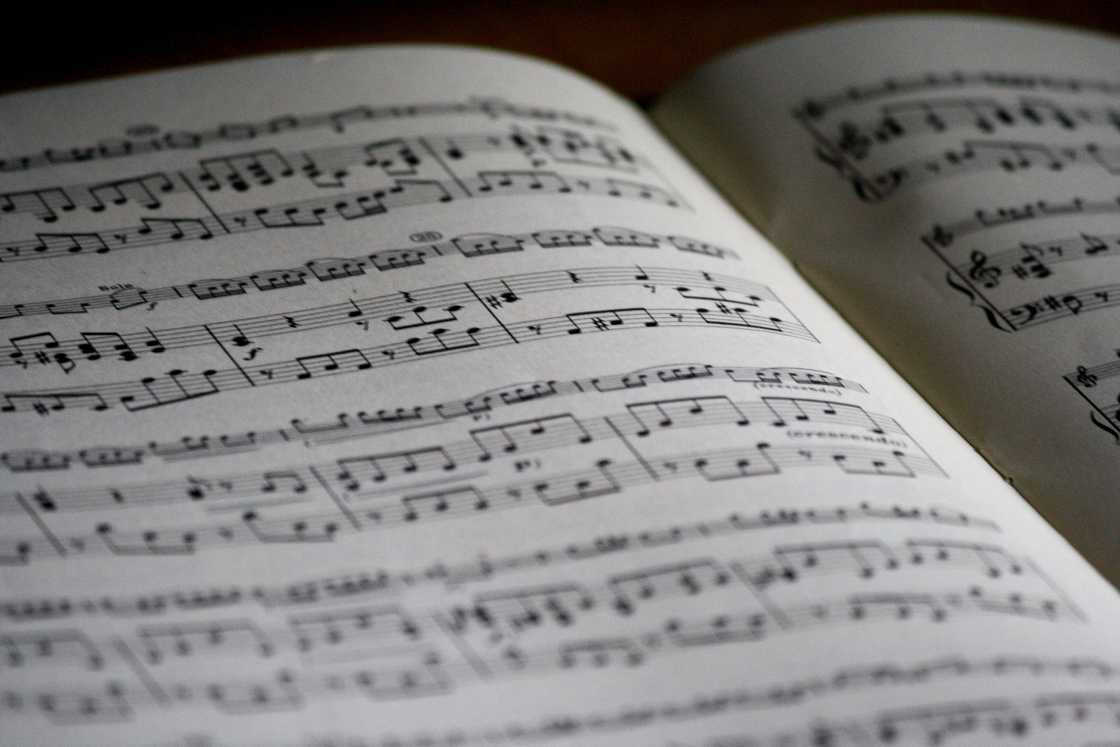What is music? Importance, types and history
What is music? Does it have any benefits? What are the various genres of music? These might be some of the questions popping in your mind when you hear about music. This article has comprehensively expounded on everything you might need to know about music. Read on.

Source: UGC
Unlike food, music is not necessary for human survival, although it is extremely pleasurable and rewarding. Music taps into the same parts of the brain that obtain pleasure from things like food. This is because music floods the brain with a chemical called dopamine which is associated with motivation, pleasure, and reward. So, what exactly is music?
What is music?
Music is a word that comes from the Greek word 'mousike'. It can be translated to mean 'the art of the muses'. Music is defined as a form of art which is an expression of emotions using harmonic frequencies. It is also a form of entertainment which combines sounds in a way that we can dance to or find interesting. Another definition of music is that it is a sound that has been organised using melody, rhythm, or harmony. This means that if someone bangs a bottle, it makes noise. However, if they bang many bottles in a rhythmic way, then they are making a simple type of music. These definitions imply that music refers to some form of sound that produces rhythms.
READ ALSO: Top 10 Songs in Ghana Currently
History of music
Have you ever wondered how music came to be? Some scholars believe that music originated from naturally occurring rhythms and sounds. This is because to date, some cultures have certain instances of their music that copy natural sounds. Others argue that the first musical instrument was the human voice, which has the ability to make various sounds such as humming, clicking, coughing, and singing. Aside from the opinions of these scholars, evidence indicates that music dates back to the prehistoric times; in 2008, archaeologists discovered a bone flute in a cave near Ulm, Germany; this flute was considered to be about 35,000 years old. This proves the existence of music in the prehistoric period.
The end of the prehistoric period of music was marked by the development of writing. The new age of music was referred to as ancient music (before 500 AD). The oldest example of a musical composition during this age was the Seikilos epitaph. Seikilos epitaph is a song that was found engraved on a tombstone somewhere in present-day Turkey. The end of the ancient music era paved way for the Biblical music era which is evident from the many Bible stories. For example, following their triumphal passage of the Red Sea, the Israelites and Moses thanked God through music. Furthermore, David was referred to as the Psalmist because he composed a lot of songs. David also played the harp to King Saul whenever the king was in bad mood. This is evidence of the existence of music in the Biblical age.
Music has evolved to the modern day, where it is recorded, reproduced, and distributed through new media and technologies. In addition, in the new age, music performances have become increasingly visual as evidenced by the broadcasting and recording of musical concerts and videos. Also today, music become increasingly portable through mobile phones and headphones. Modern-day music has also brought wide experimentation with new musical forms and styles which have challenged music rules of the ancient times.

Source: UGC
READ ALSO: 7 top musicians who have changed the Ghanaian music scene in the last 25 years
Importance of music
The following are some of the reasons why music is important in our daily lives:
- Music creates unity: It brings people together. Whether in a concert, at a festival, or in a nightclub, people come together to enjoy the music being played. Music is the reason why you are likely to see people travel from all over the world to go enjoy a musical experience. This is because regardless of where you come from, music will always treat you the same as everyone else.
- Music creates emotional feelings: Music evokes various emotions. For example, when you listen to your favourite music, your brain releases dopamine, a chemical responsible for boosting feelings of excitement, happiness, and joy. In addition, according to science, listening to sad songs can make someone happier.
- Music helps in the creation of memories: Music is said to be good for a human’s memory. This is why people are capable of remembering musical lyrics so much better than the words in an article they have read. Furthermore, some nursing homes rely on musical therapy to help the elderly remember their past.
- Music creates ambience: Music creates ambience and this is why it is included in parties, movies, sports events, and so on. More so, it is a source of entertainment. Can you imagine a fun party without music? Probably not.
- Music can be used to convey messages: Some musicians use music to convey messages to their target audience. For example, musicians create music to condemn social evils or promote virtues such as peace and unity. In addition, music can also be used to educate people aside from entertaining them.
- Music facilitates communication: Music is a universal language and as such, it promotes communication that goes beyond words, promotes development, maintains national identities, and enables meanings to be shared among groups and cultures.
- Music is good for human development: Scholars have noted that music is important for human development right from foetal development. Early interactions between a child and their mother have a musical quality that aids in the development of communication skills. Moreover, listening to music can boost intelligence and enhance self-esteem.

Source: UGC
READ ALSO: 5 reasons why the modern Ghanaian musician is not talented
Types of music
As mentioned earlier, music has evolved throughout the years, thereby giving rise to various types of musical genres. Here are the most common types of music.
- Blues: A type of slow and sad music which developed from the songs of black slaves in the US.
- Background music: Quiet music played in a public place. In addition, background music can be music included in a film to generate a particular mood.
- Backing: Music sang to add to the voice of the main singer.
- Classical music: Music that is written according to standard European structures.
- Country music: A type of music that is based on the traditional music of the Southern US and it contains guitars, singing, and violins.
- Dancehall: A type of music with fast beats, otherwise called raga music.
- Dance music: A type of music with strong beats that can be danced to in clubs. It often involves a lot of electronic production.
- Disco: Music that has a strong beat and is easy to dance to. Disco music was popular in the 1970s.
- Folk music: Traditional music from a particular region, community or country. In most times, folk music is developed by people who are not professional musicians.
- Fusion: A type of modern music that contains a mixture of different styles.
- Hip-hop: A type of music developed among Africans and African-American musicians using samples and rap that are combined with musical instruments.
- House music: A type of modern electronic music that combines deep bass sounds with parts that are played on a synthesizer.
- Kwaito: A type of music which started in the 1990s around the townships of South Africa and contains African lyrics and rhythms.
- Jazz music: A type of music that contains a string lively beat and the players often make up the music as they play.
- R&B: R&B stands for rhythm and blues and is a type of music that combines soul and blues styles with modern production methods and beats.
- Rap music: A type of music where the artist talks using rhyme and rhythm usually over a strong musical beat.
- Rock music: Music that uses a heavy regular beat, singing, a tune, and electric guitars.
- Soul music: A type of African-American music that combines R&B with gospel, rock and roll, and pop styles. It has strong beats and its emphasis is on singing.
- Gospel music: A type of Christian music that is sung by groups of singers who have powerful voices. It is sung with the intention of praising or worshiping God.
- Techno: A type of dance music consisting of heaving drum sounds, repeated beats, and funk influences.
Now you know what is music, benefits obtained from it, as well as the various categories of music. It is also apparent that music has evolved since the prehistoric era to the modern era where it is recorded, distributed, and listened through technological aids. Pick any type of music today and enjoy listening to it.
READ ALSO:
- Hiplife Music in Ghana - All You Need to Know
- Living the life of class: Cars that some musicians drive
- These 12 Ghanaian songs will set the mood for a perfect kiss
- 8 Ghanaian musicians who produced just one-time hit songs
- 8 things we hate about Ghanaian music videos
Source: YEN.com.gh





